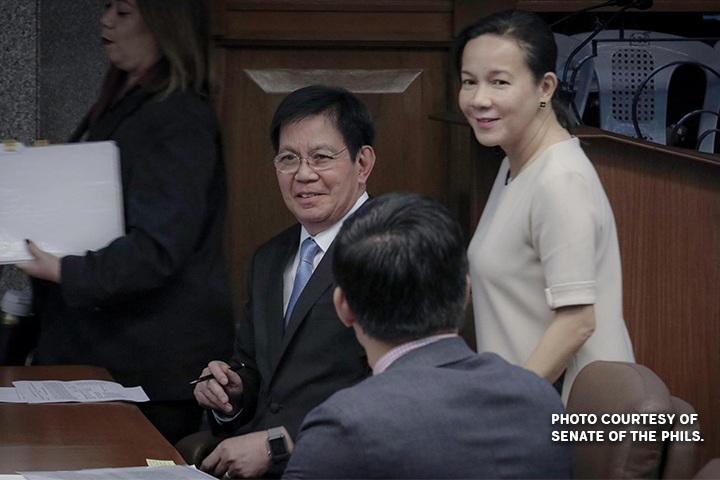Headline
Senators welcome Duterte ‘Swiss challenge’ proposal for gov’t projects
MANILA— Two senators on Monday backed the proposal of President Rodrigo Duterte to carry out big-ticket government projects using the Swiss challenge system noting that it would not only speed up the bidding process but also improve the quality of projects.
Senator Panfilo Lacson said Duterte has a point because the public was fully aware of the quick deterioration of infrastructure projects.
“Mainam na rin ang pinupunto ng pangulo na i-try ang Swiss challenge, lalo at ang lalaki ng Build, Build, Build program ng pamahalaan (The President made a good point by suggesting to try the Swiss challenge, especially because the Build, Build, Build program of the government is huge),” Senator Panfilo Lacson said in a radio interview.
He said this is because the supplies usually used by the winning supplier are usually substandard, particularly, roads.
“Nagagalit ang mga Pilipino pag nakakakita ng lubak-lubak, kagagawa pa lang, buwan pa lang ang binibilang, ito na naman repair na naman dahil substandard (Filipinos are angry when they see bumpy roads, newly-constructed ones, barely a few months have passed and they already need repair because they’re made using substandard materials),” he added.
Lacson said that if big-ticket government projects go through regular bidding, the lowest-bid rule, the process would take longer and would also be a source of corruption.
“If it would go through regular bidding, we know that aside from it takes such a long process, contractors also get to talk to each other,” Lacson said.
He, meanwhile, said the government should consider the legalities of the Swiss challenge under the Government Procurement Act.
“They should consider its legalities under the Government Procurement Act, it is better that the President suggested to use the Swiss challenge so that the quality of projects would improve and the process is sped up,” he explained.
Last Saturday, Duterte said he wanted to use the Swiss challenge system and do away with public bidding on big-ticket government projects since it caused delays and bred corruption.
“Huwag na tayong mag-bidding. ‘Pag mag-bidding ganun rin, mas lalo nang matagal. All projects of the Philippines would be something like a Swiss challenge. Ito gawain mo, pagkatapos niyan, if you do it correctly at walang corruption, I will pay you (Let’s not have biddings anymore. If you have biddings, it will be he same,it will cause delay. All projects of the Philippines would be something like a Swiss challenge. You do this, and when you do it properly without corruption, I will pay you),” Duterte said upon his arrival from India.
For her part, Sen. Grace Poe said the proposal to carry out a Swiss challenge system for big-ticket government projects should be “fair and reasonable”.
She said the government could get the best offer from other qualified contractors and at the same time, eliminate collusion.
“Who says procurement regulations must remain static? They should be constantly improved in the execution level, by harnessing best practice experiences and again transparency,” Poe said in a press statement.
Poe said that the solution is to cut the red tape in the bidding for government projects and ensure that the entire system will remain transparent.
“Let us find ways to shorten the process, we can even short-circuit the regulations to eliminate opportunities for corruption, for as long as this will not leave the people shortchanged with substandard projects,” she added.
The senator also expressed support for any move to punish unscrupulous public officials who rig bidding terms of reference for every project to favor contractors and those who cause delays in the implementation of infrastructure projects by tendering low bids only to sell contracts won to legitimate bidders.
Under Republic Act No. 9184, or the Government Procurement Reform Act, the government awards the contract to the lowest bidder.
On the other hand, the Swiss challenge system allows a private firm to give a proposal to the government and third parties can either match or surpass the proposal.






















